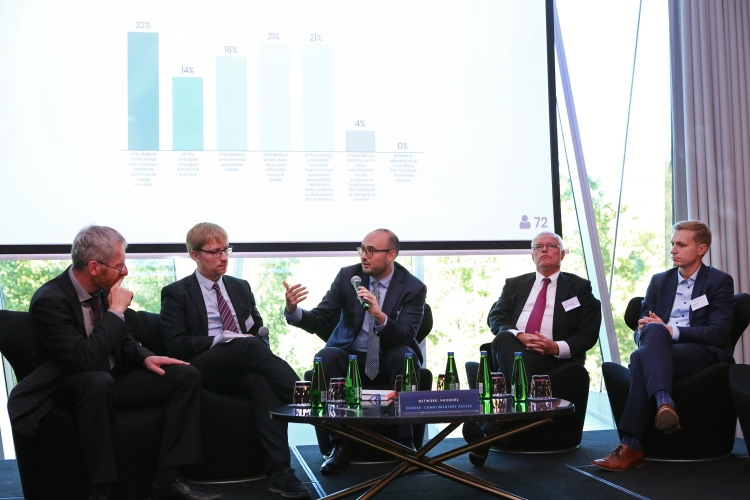The attendees included Johan Vetlesen, Jean-Arnold Vinois, Martin Kruus, Hans Jorgen Koch, Jarmo Heinonen, Leonardo Zannier, representatives of the ministries of Sweden, Lithuania, Estonia, Denmark and Latvia; creators of the blockchain-based renewable energy trading platform, Estonian and Lithuanian joint venture WePower; Danish and Estonian local government leaders and many others.
During these two days several good answers were found to the general question of the conference, “How can the Energy Union’s new targets be reached?”. Johan Vetlesen, Deputy Director General at the Ministry of Petroleum and Energy of Norway, highlighted two main premises for reaching the new targets: “Firstly, the Government, companies and the market have to cooperate. Secondly, regional cooperation is also necessary at all levels.” He also highlighted the presentations of DG ENER and IEA, which showed that Nordic countries and the Baltic States are the leaders in most management and energy circulation dimensions.
The conference culminated in the afternoon of the second day, when the new Nordic-Baltic research agreement was signed by the Minister of Economic Affairs and Infrastructure Kadri Simson on behalf of Estonia and Hans Jørgen Koch from Nordic Energy Research. The goal of the agreement is to improve cooperation in the field of energy and to find regional solutions for the creation of future energy systems. This means joint scientific research and exchange programmes for researchers and doctoral students.
According to Director of Nordic Energy Research Hans Jørgen Koch, this initiative is an important step towards the improvement of the exchange of ideas and knowledge between Nordic countries and the Baltic States. “Cooperation is extremely important to guarantee the energy security and competitiveness of both Nordic countries and the Baltic States in the world also in the future,” said Koch.
Take a closer look at the conference presentations and photos.
Read Johan Vetlesen’s summary of the conference.

